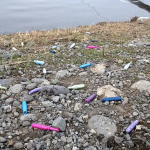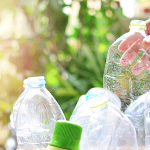Sustainable Development: What Businesses Can Do
By Eleanore Spies, Bethesda Green B Corp Intern
As we strive to protect our planet for future generations, more and more businesses are looking for ways to contribute. One growing global community of businesses are B Corporations (B Corps). Sophia Maroon, the founder of the local Montgomery County B Corp, Dress It Up Dressing, describes her mission: “As a B Corp, we measure our success in more than just dollars… We believe that when companies behave like individuals, taking care of customers and the community like they are family members, everyone benefits.” Along with the B Corp movement, many businesses are looking towards the United Nations’ 17 Sustainable Development Goals for guidance on how to operate responsibly.
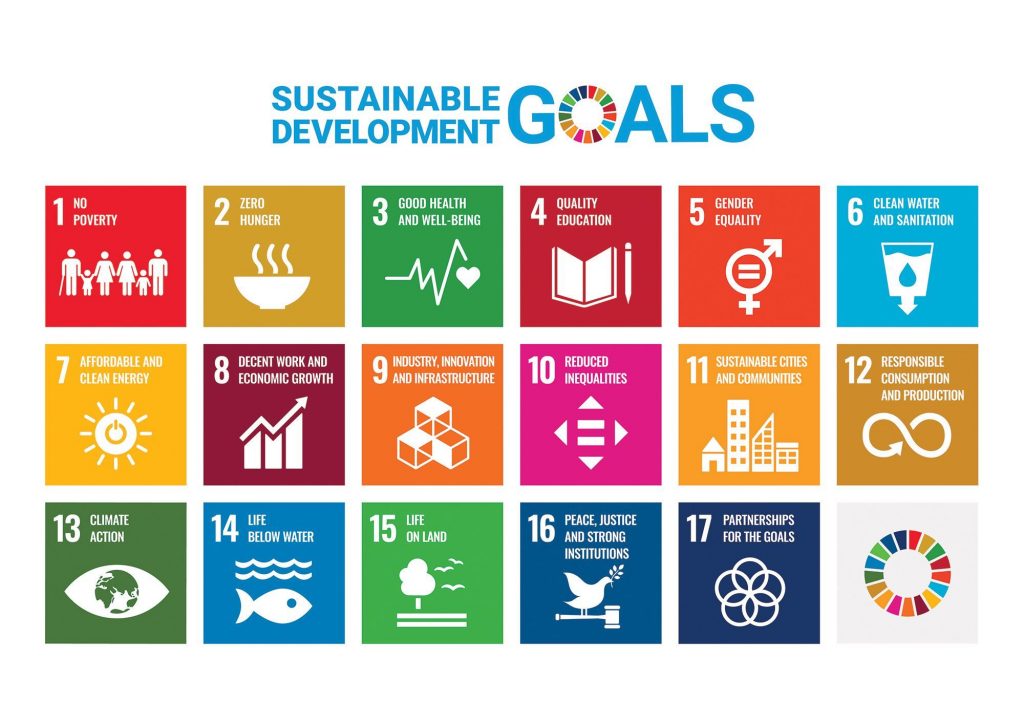
The path towards the Sustainable Development Goals has been long in the making. Agenda 21, the United Nations’ earliest plan of action to foster sustainable development, was signed by more than 178 countries at the 1992 Earth Summit in Rio de Janeiro, Brazil. Five years earlier, the modern definition of sustainable development was officially introduced by the Brundtland Report: “Sustainable development is development that meets the needs of the present without compromising the ability of future generations to meet their own needs” (Brundtland Commission, 1987). At the turn of the century, the United Nations Member States collaborated to create the eight Millennium Development Goals (MDGs), whose campaign is hailed as the most successful international movement to combat poverty in history. On September 15th of 2015, the United Nations expanded upon this framework and announced their agenda to dramatically progress global sustainable development by 2030.
These comprehensive 17 Sustainable Development Goals, or SDGs, span from ending global poverty (1) to ensuring quality education for all (4) to conserving our oceans (14). The SDGs call upon developed and developing nations to recognize the urgency of pairing these objectives with global action. Each year, a Sustainable Development Goals Report is released to evaluate the state of global sustainable growth, including areas of progress and room for improvement.
However, the SDGs cannot be effective without considerable support and commitment from the private sector. The 2030 Agenda for Sustainable Development calls for “governments, international organizations, the business sector and other non-state actors and individuals [to] contribute to changing unsustainable consumption and production patterns, including through the mobilization, from all sources, of financial and technical assistance to strengthen developing countries’ scientific, technological and innovative capacities to move towards more sustainable patterns of consumption and production.” In other words, businesses should tailor their business model towards sustainable impact.
The SDG Action Manager, developed by the United Nations Global Compact and B Lab, stands out among other sustainable development tools because of its direct alignment with the SDGs. Each module of the tool is organized by SDG. It includes a baseline, which allows businesses to determine their starting point and from there, decide on which SDG they would like to prioritize first. Since the SDG Action Manager acts as a guide, businesses do not need to fill out every module. Many facets of business are targeted, including the “business model, operations, supply chain, collective action, and risk,” so that businesses can explore the full scope of their impact (B Lab, 2020). And, multiple people can be added to the tool simultaneously, which keeps colleagues on the same page when filling out the SDG Action Manager.
Moreover, the SDG Action Manager attracts new customers and talent. South Pole, a Swiss carbon finance consultancy founded in 2006, “has found a new way to motivate and connect clients with sustainability efforts by connecting projects with the SDGs” (B the Change, 2020). However, this tool is not only relevant to larger companies whose mission directly aligns with sustainable development. Located in Kentucky, the branding agency Bullhorn utilized the SDG Action Manager to strengthen their partnerships within the local community. Bullhorn “donates branding and language work primarily to small nonprofits and governmental programs” (B the Change, 2020. As a result, Bullhorn has found greater meaning to their work and attracted purpose-driven employees to their company.
Another free online tool, the B Impact Assessment (BIA), keeps track of a business’s impact as well as its policies and practices. The BIA is split up into five sections: governance, workers, community, environment, and customers. In turn, this provides a distinct framework to evaluate a business’s standards and operations. Conveniently, the BIA can be accessed through the same platform as the SDG Action Manager, meaning that particular questions from the SDG Action Manager and the B Impact Assessment overlap. When one of these questions on the SDG Action Manager is completed, it will automatically fill in on the BIA, and vice versa.

The BIA is scored not by percentage of completion like the SDG Action Manager, but through a point system. If a company reaches 80 points or more, it may apply for the B Corp Certification. In a sense, you can think of the B Corp Certification as a standard for business similar to the relationship between the Fair Trade Certification and a wide range of products around the world. It even maintains the title of being the only certification that measures a company’s entire social and environmental performance. Currently, the B Corp community consists of over 3,500 certified B Corps worldwide and more than 50,000 businesses who have used the B Impact Assessment (About B Corps). Businesses can compare their answers to the community of companies using the tool. Leaders in the community include “Dr. Bronner’s and Patagonia, two B Corps that are working on a regenerative organic certification with the Rodale Institute and other allies” (B the Change, 2019). Based on community benchmarks, businesses can set specific goals for improvement.
The BIA provides both an evaluative and educational experience for businesses. As explained by the Standards Director at B Lab, the goal of the BIA is “to both differentiate the performance of companies AND provide an educational, reflective experience for companies to identify and take concrete actions for improvement” (B Lab, 2018). For each question on the BIA, a ‘Learn’ button leads you to relevant resources, organized by headers like Explanations, Examples, and Implementations. For instance, a report on zero-carbon economic growth is provided for the question, Monitoring Energy Usage for Air and Climate. Access to these resources is particularly helpful for businesses that are unsure about their next step towards improvement.
Now more than ever, it is important to strengthen the initiatives that improve health access, education, climate change, and global poverty. The United Nations’ Sustainable Development Goals Report from 2020 describes the impact of Covid-19 on the path towards sustainable development. In particular, the Covid-19 pandemic has affected just about all aspects of business operations. The next question to be asked is: Will this economic shock “be a tectonic shift with rising political and social instability, or a shock that leads us to reinforce the foundations of just societies and the principles of solidarity and democratic decision-making that move societies, labour markets and workplaces in the direction of equality” (UN News).
As evident from the developing climate crisis, the world’s response to global warming, among many other urgent issues, is time-sensitive. But by collectively working towards sustainable impact, the health of today’s community will not only improve, but also that of generations to come.
Works Cited
About B Corps. (2020). Retrieved March 16, 2021, from https://bcorporation.net/faq-categories/about-b-corps#:~:text=There%20are%20currently%20over%203%2C500,Read%20more
B Lab. (2018, November 14). Measuring impact versus measuring practices: How the b impact assessment’s dual objectives require… Retrieved March 16, 2021, from https://bthechange.com/measuring-impact-versus-measuring-practices-how-the-b-impact-assessments-dual-objectives-require-9e44821e9c6b
B Lab. (2020, February 05). Develop the most effective impact strategies with this new tool. Retrieved March 16, 2021, from https://bthechange.com/develop-the-most-effective-impact-strategies-with-this-new-tool-41e6e19279de
B The Change. (2019, June 27). How the sdgs help businesses effectively measure and collaborate to address the climate crisis. Retrieved March 16, 2021, from https://bthechange.com/how-the-sdgs-help-businesses-effectively-measure-and-collaborate-to-address-the-climate-crisis-ec885036798a
B The Change. (2020, November 29). A tool to help b corps achieve the sdgs and address global issues. Retrieved March 16, 2021, from https://bthechange.com/a-tool-to-help-b-corps-achieve-the-sdgs-and-address-global-issues-2107485d2c70
Brundtland Commission (1987). Our common future. Report of the World Commission on Environment and Development. pp. 1–23. http://www.un-documents.net/ocf-ov.htm
UN News. (2020, May 27). ‘Business as unusual’: HOW Covid-19 could change the future of WORK | | UN NEWS. Retrieved March 16, 2021, from https://news.un.org/en/story/2020/05/1064802
About the Author:
 Eleanore Spies, Bethesda Green B Corp Intern
Eleanore Spies, Bethesda Green B Corp Intern
Eleanore is a Bethesda native and third-year student at the University of Maryland, College Park. She is completing a major in economics and a minor in sustainability. Eleanore is passionate about reducing single-use plastic waste and teaching her peers about sustainability. She will be working on the Best for DMV Campaign and the B Corp 101 Workshop series. Outside of work, Eleanore can be found searching for new hiking trails, baking, and painting.


